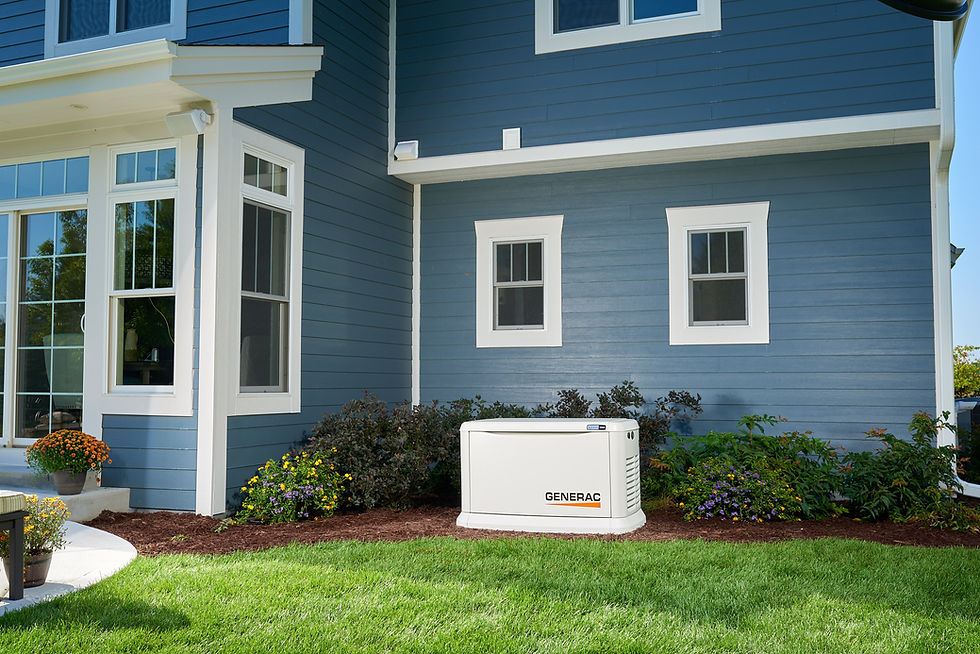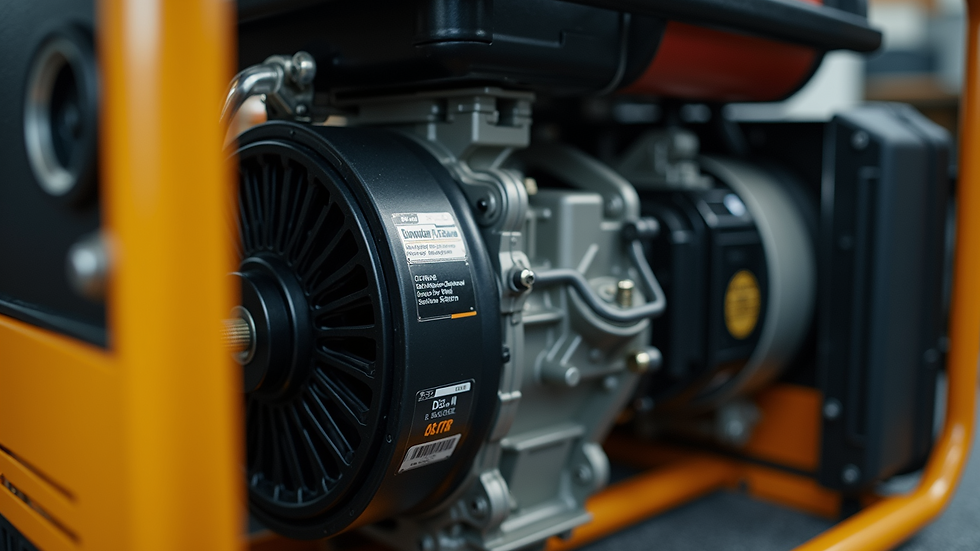Why Regular Maintenance Keeps Generators Running
- Joe Mannarino
- Jul 21, 2025
- 4 min read
Generators are essential appliances that provide backup power during outages, keeping your home operational. However, like any other piece of machinery, they require regular maintenance to ensure they function correctly and efficiently. Neglecting to maintain your generator can lead to severe malfunctions and costly repairs. In this article, we'll explore the importance of generator maintenance, the specific tasks involved, the benefits of regular servicing, and how to set up a maintenance schedule.
The Importance of Generator Maintenance
Generator maintenance is crucial for several reasons. First and foremost, it ensures operational reliability. When a power outage occurs, you want to be confident that your generator will start on demand. Regular maintenance helps detect and resolve issues before they become major problems.
Additionally, routine checks can extend the lifespan of your generator. Just as regular oil changes prolong the life of a car, timely maintenance of your generator can result in years of efficient operation. According to industry experts, a well-maintained generator can last 10-30% longer than one that's neglected.
Moreover, regular maintenance can improve fuel efficiency. This means not only do you save money on fuel when your generator runs efficiently, but you are also doing your part to reduce unnecessary emissions. Regular inspections can optimize fuel consumption, which is beneficial for the environment and your wallet.

Key Components of Generator Maintenance
When it comes to generator maintenance, several key components need to be routinely checked and serviced.
Oil Changes: Just like vehicles, generators require regular oil changes to function optimally. Depending on the model, it's advisable to change the oil every 100-150 hours of operation or at least once a year.
Air Filters: Clean air filters are essential for ensuring that the generator operates smoothly. Clogged filters can decrease performance and efficiency, making routine cleaning or replacement crucial.
Battery Testing: The battery is the heartbeat of the generator. Regular testing can prevent unexpected failures during power outages.
Spark Plug Replacement: Over time, spark plugs can wear out or become coated with dirt. Regularly checking and replacing them as needed helps maintain efficient operation.
Fuel System Checks: Fuel lines, filters, and tanks should be inspected regularly. Old fuel can lead to gumming and clogging, which may hinder your generator's performance.
By staying on top of these crucial components, you can avoid significant breakdowns and costly repairs in the future.

What maintenance is required for a whole house generator?
Maintaining a whole house generator requires a slightly different approach than portable models. These generators often have more complex systems, including transfer switches and automatic controls. Here are some specific maintenance tasks to keep in mind:
Weekly Exercise: Running the generator at least once a week for a short period (15-30 minutes) keeps the engine lubricated and helps identify any issues with startup.
Oil and Filter Changes: Like other generators, oil changes should occur regularly. Typically, this is recommended every 100 hours of operation or annually.
Coolant Checks: It’s essential to check coolant levels and condition, especially if your generator is liquid-cooled. Look for leaks or discoloration, which can signal problems.
Transfer Switch Inspecting: The transfer switch is vital for safely connecting your generator to your home’s electrical system. It should be inspected for corrosion or wear.
System Testing: Conducting a full system test ensures all components are working correctly. Schedule professional inspections as recommended.
By adhering to these specialized maintenance tasks, whole house generators can provide reliable service for many years.
Benefits of Regular Generator Maintenance
Regular maintenance not only keeps your generator running smoothly; it also comes with numerous benefits. For starters, there’s the peace of mind that comes with knowing your generator is reliable. This assurance is particularly valuable during storms or other situations when power disruptions are likely.
Another key benefit is cost-effectiveness. Investing in routine maintenance is less expensive than dealing with major repairs after a breakdown. According to recent statistics, performing preventive maintenance can save homeowners up to 50% on repair costs.
Furthermore, you may also find your insurance premiums impacted positively by maintaining your generator. Insurance companies may be less likely to raise your rates if you can prove you uphold proper care and servicing of your backup power source.
Lastly, regular maintenance can yield improved safety. Generators can pose risks, such as carbon monoxide poisoning or electrical hazards. Keeping up with maintenance ensures that safety features operate correctly, reducing the risk of accidents.
Creating a Maintenance Schedule
To keep your generator in top condition, creating a maintenance schedule is vital. This schedule should include both your personal checks and professional servicing. Below are steps to help you formulate an effective plan:
Consult the Manual: Start by reviewing the manufacturer's manual. It contains specific recommendations for maintenance intervals and tasks.
Set Reminders: Use digital calendars or alert systems on your phone to remind you when it’s time to perform checks and services. Taking action promptly can prevent larger issues.
Document Everything: Keep a maintenance log documenting each service performed. This aids in tracking performance and makes it easier to identify patterns or recurring issues.
Schedule Professional Servicing: Consider engaging a professional service for annual inspections, typically before peak usage seasons. They can ensure all aspects are correctly attended to and provide insights into any potential issues.
Stay Informed: Keep abreast of the latest technologies and servicing techniques. This knowledge will help you make informed decisions regarding maintenance and repairs.
By establishing a systematic maintenance schedule, you not only optimize generator performance but also prolong its lifespan, ensuring that it remains a reliable source of backup power.

Final Thoughts
Regular generator maintenance is not just a good practice; it is crucial for ensuring the longevity and reliability of your power backup system. A well-maintained generator provides peace of mind, cost savings, and safety during unexpected power outages.
If you're looking for detailed information on specific generator maintenance procedures, be sure to check out generac generator maintenance. By committing to a regular maintenance routine, you can enjoy uninterrupted power and a dependable generator when you need it the most.





Comments